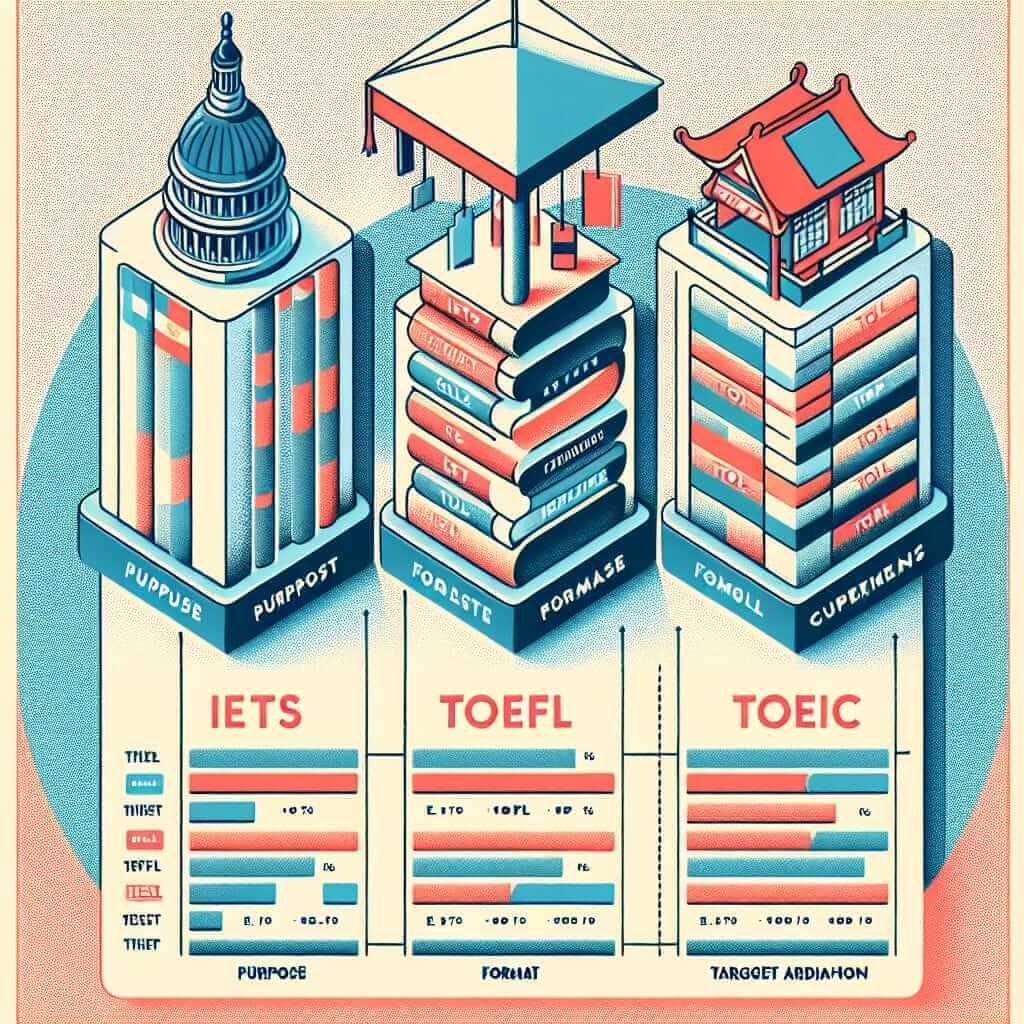As an IELTS instructor with over 20 years of experience, I often encounter students struggling to choose the right English proficiency test. While IELTS, TOEFL, and TOEIC all assess your English language skills, they serve distinct purposes and cater to different audiences. Understanding these differences is crucial for selecting the test that aligns with your personal, academic, or professional goals.
Understanding the Differences: IELTS vs. TOEFL vs. TOEIC
Let’s break down each test to clarify their unique attributes:
IELTS (International English Language Testing System)
- Purpose: IELTS is designed to assess the English language proficiency of individuals who plan to study or migrate to a country where English is the primary language of communication.
- Focus: The test evaluates your ability to understand and use English for academic, professional, and social purposes, emphasizing practical communication skills.
- Variations: IELTS offers two versions: Academic and General Training. The Academic version is suitable for university admissions and professional registration, while the General Training version is appropriate for immigration and work experience purposes.
- Format: IELTS assesses four language skills: Listening, Reading, Writing, and Speaking. The speaking test involves a face-to-face interview with a certified examiner.
- Scoring: IELTS uses a band score system ranging from 0 to 9, with 9 being the highest level of proficiency.
TOEFL (Test of English as a Foreign Language)
- Purpose: Similar to IELTS, TOEFL primarily evaluates English language proficiency for university admissions and scholarships. It is widely accepted by institutions in North America.
- Focus: TOEFL focuses on academic English, assessing your ability to understand lectures, read academic texts, and write essays.
- Format: TOEFL is entirely computer-based and consists of four sections: Reading, Listening, Speaking, and Writing. The speaking section requires you to record your responses to prompts.
- Scoring: TOEFL is scored out of 120 points, with each section carrying 30 points.
TOEIC (Test of English for International Communication)
- Purpose: TOEIC focuses on assessing English language skills in a workplace context. It is often used by businesses and organizations to evaluate the English proficiency of employees or potential hires.
- Focus: The test measures your understanding of English used in everyday business situations, such as meetings, presentations, and negotiations.
- Format: TOEIC comprises two sections: Listening & Reading and Speaking & Writing. Each section is timed and focuses on specific business-related scenarios.
- Scoring: TOEIC scores range from 10 to 990, with higher scores indicating greater English proficiency for business communication.

Choosing the Right Test: Which One is Right for You?
The best test for you depends on your individual circumstances and goals:
- For university admissions: Both IELTS Academic and TOEFL are widely accepted. Research the specific requirements of your target institutions.
- For immigration: IELTS General Training is generally preferred.
- For employment: TOEIC is the most relevant choice, especially for roles requiring international communication.
Tips for Test Success:
Regardless of which test you choose, thorough preparation is key. Here are some general tips:
- Start Early: Allow yourself ample time to study and improve your language skills.
- Understand the Test Format: Familiarize yourself with the structure, question types, and time limits of your chosen test.
- Practice Regularly: Engage in consistent practice tests and exercises to build your confidence and identify areas for improvement.
- Seek Professional Guidance: Consider enrolling in an IELTS, TOEFL, or TOEIC preparation course or working with a qualified tutor.
Conclusion
Selecting the appropriate English proficiency test is a crucial step in achieving your academic, professional, or personal aspirations. By understanding the differences between IELTS, TOEFL, and TOEIC, you can make an informed decision that aligns with your goals. Remember to prepare thoroughly and seek guidance when needed to maximize your chances of success.